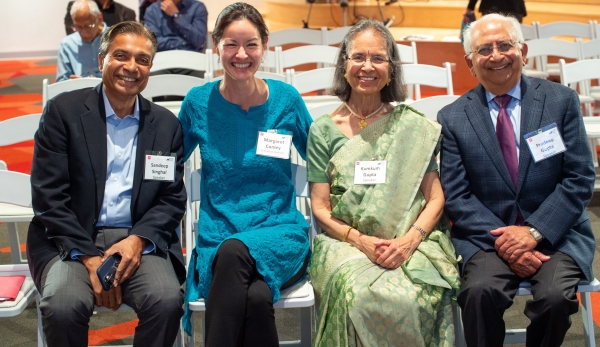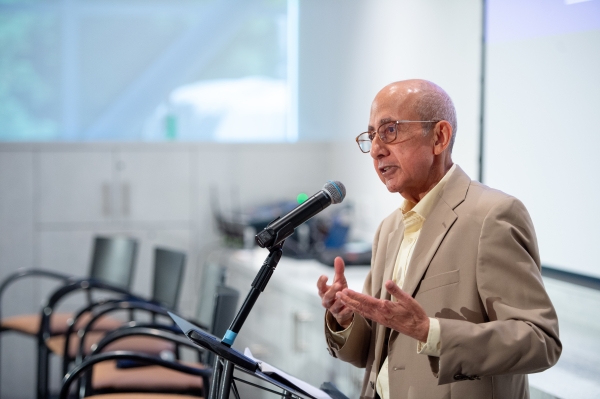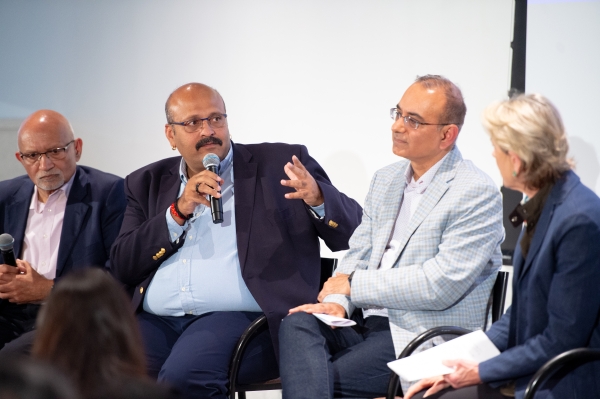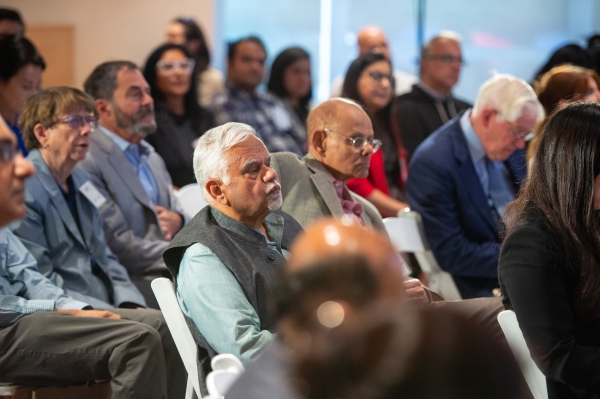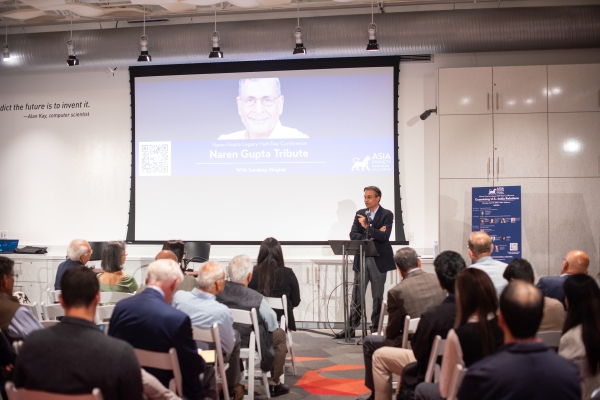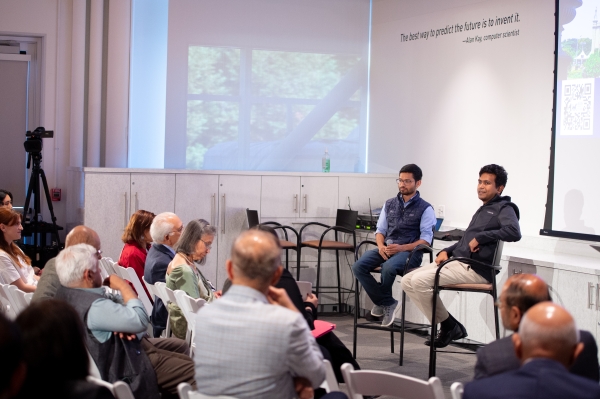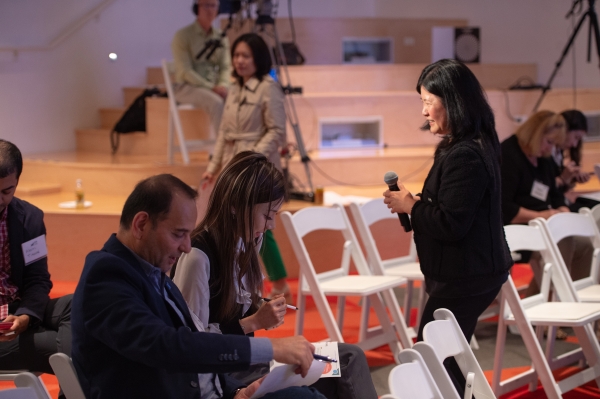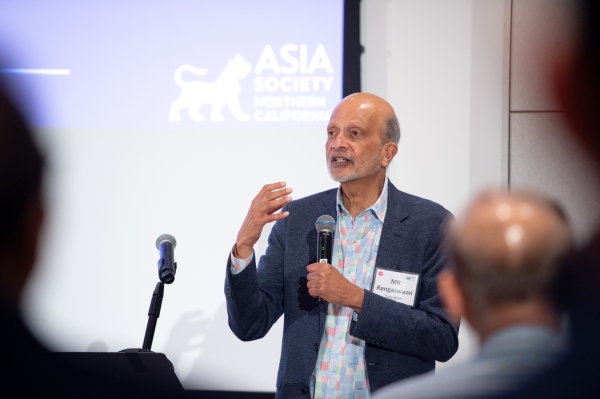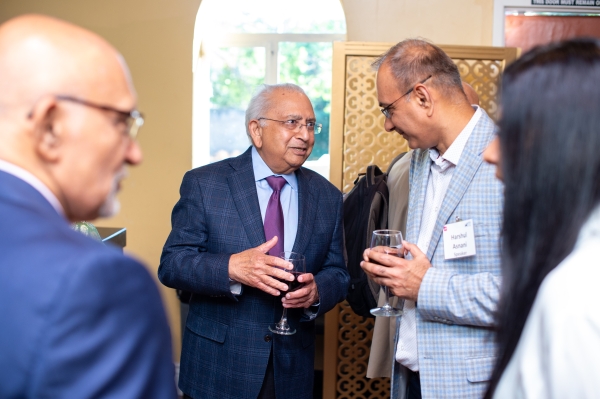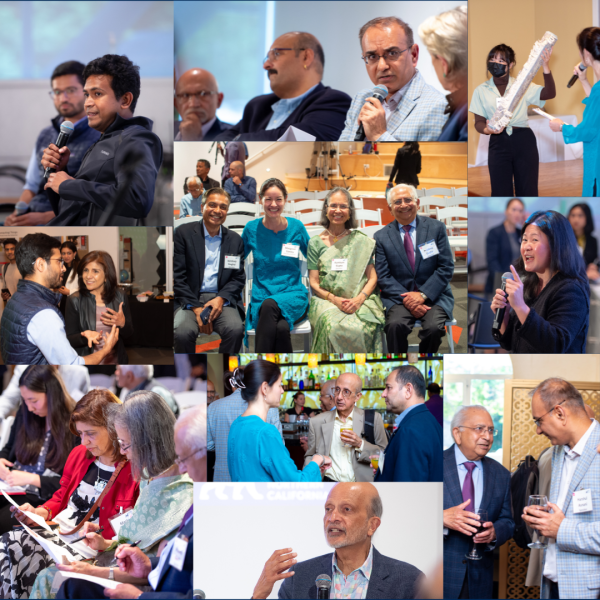Event Recap: Examining U.S.-India Relations 2023: Naren Gupta Legacy Series Half-Day Conference
On Thursday, June 15, Asia Society Northern California hosted a half-day conference in Silicon Valley as part of its Naren Gupta Two-Year Legacy Program Series on the topic Examining U.S.-India Relations. Launched in April 2022, this series pays tribute to the legacy of our long-time and beloved Advisory Board Member, Naren Gupta (1948-2021) and addressed the topics closest to his heart: business, entrepreneurship, and cultivating the next generation of innovative leaders, especially those hailing from India.
Our 2023 conference agenda included sessions on U.S.-India relations, the G20 hosted in India this September, Silicon Valley-India ties, technology, business, and philanthropy.
See below for detailed session recaps and videos.
Session 1: Keynote on U.S.-India Relations by Rafiq Dossani
This session featured keynote speaker Rafiq Dossani, who gave an overview on the state of U.S.-India relations. Rafiq Dossani is the director of the RAND Center for Asia Pacific Policy, a Senior Economist at the RAND Corporation, and a professor of policy analysis at the Pardee RAND Graduate School.
Dossani began by highlighting that in the early 2000s, due to a number of geopolitical issues involving India, the U.S. began to view India as a security partner in addition to an economic one. This marked a noticeable shift in the relationship between the two countries. It was noted that between 2010 to 2015, relations between the U.S. and India were considered to be at their best, with India being the largest purchaser of U.S. military technology at that time. However, Dossani acknowledged how U.S.-India relations are also affected by India’s relations with other global powers. The U.S.’ view of India was complicated after the 2014 election of Prime Minister Modi, who opened India to closer relations with China, and by the late 2010s, the U.S. stopped defense technology transfer to India. Dossani asserted that as a result of the ongoing Kashmir conflict and the involvement of India, Pakistan, and China, India-China relations began to worsen, pushing India closer to Russia. Finally, Dossani discussed the negative impact of the Russian invasion of Ukraine on relations between the U.S. and India, as the U.S. has continued to pressure India to condemn Russian actions.
Dossani also took questions from the audience, especially regarding how a U.S.-India partnership can be strengthened.
Session 2: U.S.-India Technology Corridor and India’s G20 Leadership
This session featured a panel discussion with speakers Harshul Asnani (Sr. Vice President and Head of the Global Technology Business at Tech Mahindra), Amit Kapoor (Honorary Chairman at Institute for Competitiveness, India; Visiting Scholar at Stanford University; President of India Council on Competitiveness; and Editor-in-Chief of Thinkers), and Arun Kumar (Managing Partner at Celesta Capital). Marsha Vande Berg, Independent Corporate Director, served as moderator.
After introductions each panelist shared their insights on the session topic. Arun Kumar spoke on drivers contributing to India’s agenda from an investment and commercial perspective. Kumar noted drivers including infrastructure development, digital expansion, a flourishing start-up culture in India, and a focus on supporting the underprivileged.
Amit Kapoor discussed catalysts driving India’s domestic and economic policies. Kapoor emphasized a desire to increase ease of conducting business, ease of living, higher education rates, sustainability, prosperity across socioeconomic classes, and construction of resilient public works.
Harshul Asnani spoke on technological catalysts and their evolution inside India, Silicon Valley, and in the U.S.-India Corridor. Asnani elaborated on five key points: the large startup ecosystem in India, the expansion of digital initiatives for public services led by the Indian government, the increase in domestic consumption of technology in India, outsourcing of IT services, and the Indian talent pool.
The session concluded with a Q&A portion with questions from audience members.
Session 3: Silicon Valley-India Tech Ties
This session was introduced by Anita Manwani, the founder and CEO of Carobar Business Solutions and president of TiE Silicon Valley, and featured Manthan Shah, the Senior VP of WestBridge Capital, and Jonathan Siddharth, the CEO and co-founder of Turing.com.
Shah and Siddharth discussed the future of AI and the Silicon Valley-India tech corridor. Siddharth began with the story of his company Turing, recounting how the struggle to hire great engineering talent led to the creation of an AI-powered search system that works to match projects to best-fit engineers who are sourced from around the world. Shah and Siddharth then more broadly explored how AI would transform jobs, whether it be in terms of labor efficiency, product management, or the elevation of skills. The speakers predicted that all companies would need to implement AI into their operations in the near future.
Finally, Shah and Siddharth covered the evolving ties between the tech sectors in the U.S. and India, especially in the age of remote work. Siddharth reflected on the changes in the past 15 years, such as the explosive growth of seed startups in the U.S. or the emergence of a number of unicorns in India. Siddharth highlighted the need to continue building a strong community for young entrepreneurs and the potential to found companies based out of India.
Questions from the audience focused on evaluating Indian talent, as well as addressing the shortcomings and opportunities for India in the tech space more broadly.
Session 4 - Philanthropy in India
Dien Yuen, Assistant Professor of Philanthropy at The American College of Financial Services, led this final session on philanthropy. As part of the session, Yuen led the audience in an interactive, reflective activity entitled “The Six T’s of Your Giving.” Afterwards, audience members were encouraged to discuss how they hope to expand their philanthropic efforts. Yuen then proceeded with a short presentation on current philanthropic trends in India. The four major points discussed were investment in philanthropic ecosystems, investment in GEDI (gender equity, diversity, and inclusion), investment to tackle climate change, and collaborative giving. At the conclusion of the session M.R. Rangaswami, Indiaspora Founder and Co-Founder of Sand Hill Group, delivered the closing remarks. Rangaswami elaborated on endeavors to maintain the rate of fundraising post-pandemic. In addition, he advocated for giving back to one’s own community, rather than exclusively abroad, through volunteer work. Rangaswami’s final sentiments carried a hope for discussion on climate change, repair of the H1 visa process, and for a future partnership in higher education between India and the United States.
Naren Gupta Tribute video coming soon!
